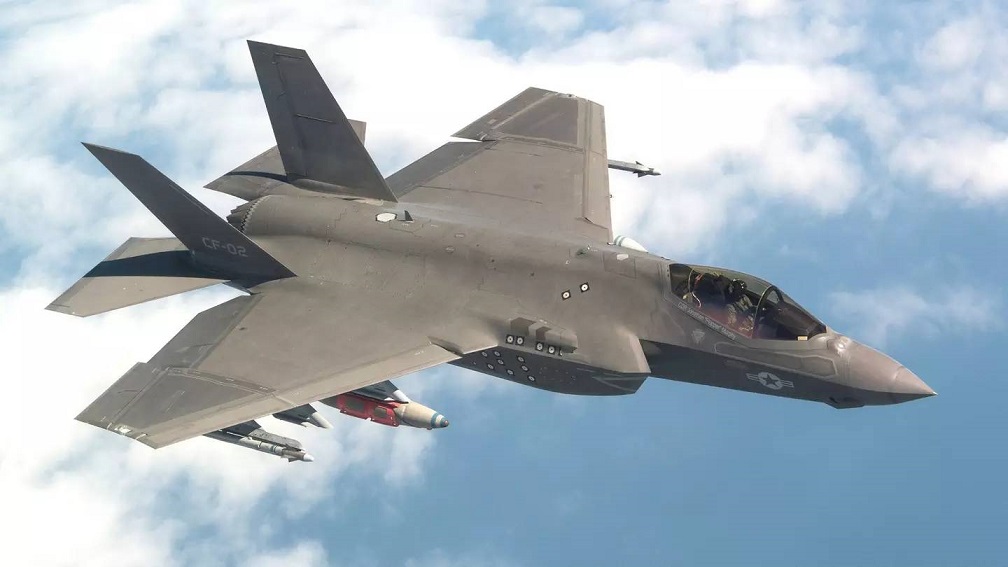Three U.S. senators move to block F-35 transfers to Turkey
June 19, 2018 | Expert Insights

A bill proposed in the US Senate, officially called the Ban F-35 Joint Strike Fighter Sales to Turkey Act, calls for the prohibition of the sale or transfer of F-35 aircraft and any related intellectual property or technical data to Turkey.
Background:
After the Cypriot coup d'état, backed by the Cypriot National Guard and the Greek military junta, Turkey had sent its forces to Cyprus on July 20, 1974. Ankara defied a host of UN resolutions demanding the withdrawal of its occupation troops from the island. U.S. Congress had then imposed an embargo on arms sales to Turkey leading to tension and mistrust between Turkey and the United States.
In March 1980 Turkey and the United States signed the Defense and Economic Cooperation Agreement (DECA). According to the DECA, the United States was granted access to 26 military facilities and in return, Turkey could buy modern military hardware and was given $450 million.
The end of the Cold War forced Turkish leaders to relook at their country's position in the international community. The United States' use of Turkish military installations during the bombing of Iraq in 1991 led to antiwar demonstrations in several cities, including sporadic attacks on United States facilities. Nevertheless, a consensus had emerged by January 1995 among Turkey's political elite, that their security best depended on remaining a strategic ally of the United States.
Turkey has since remained a close ally of the United States, supporting it in the War on Terror. In recent years however, the alliance has begun to strain as Turkish President Recep Tayyip Erdogan has eroded democratic policies and processes in his country. Turkish officials and pro-government media continue to fuel anti-Americanism, going as far to threaten hitting U.S. forces in Syria.
Analysis:
The US Senate has voted to block transfers of the F-35 fighter jet to Turkey, reflecting increasing tension with a key Nato ally. This prohibits the transfer of F-35s to Turkey until the secretary of defence submits a plan to remove Turkey from participation in the programme.
U.S. officials are concerned about Turkey's decision to purchase S-400 surface-to-air missiles from Russia. Officials worry that if the F-35 and S-400 are both being operated by Turkey, then the Russians would be able to gauge their system's performance against the F-35, which was designed to evade Russian defense systems.
Given the enormous economic value, canceling the order of a 100 or so F-35s, valued at around $100 million per jet, would make an impact for the American defense industry.
There are two major reasons for the US-Turkey tensions of today. The US has embedded about 300 soldiers in Syria with the YPG, a branch of the Kurdistan Workers' Party (PKK) which has been deadlocked with Turkish troops in a decades-long guerrilla warfare over state repression and denial of Kurdish rights. Kurdish territorial gains over the past two years have alarmed Turkey, fearful of the prospects of a similar scenario in dozens of Kurdish provinces within its own borders.
Another central argument between the two countries concerns the fate of a Turkish cleric, Fethullah Gulen, who lives in exile in Pennsylvania. Turkish officials have described Gulen as the architect of the failed coup in the summer of 2016 and demanded his extradition from the United States. American officials contend that the Turkish government has failed to provide enough evidence to warrant extradition. An American pastor, Andrew Brunson, was detained in October 2016, accused of associating with the coup plotters. White House officials, including Vice President Pence, have repeatedly pressed Turkey to release him.
Despite opposition from Congress, Turkey will receive its first F-35 Joint Strike Fighter jets from the Pentagon's top weapons supplier on Thursday. Following a formal handoff ceremony at Lockheed Martin's F-35 facility in Fort Worth, Texas, the defense giant will ferry the aircraft to Luke Air Force Base in Arizona where Turkish pilots will begin training alongside U.S. airmen.
Assessment:
Our assessment is that the US views Turkey as an important NATO partner in the region and houses an air base in the country. With U.S. interests in Turkey and the broader region in mind, Washington should develop a more holistic strategy that addresses the crosscutting complexity of these issue.
A ban on the sale of F-35s could offer Erdogan a lifeline, whose economic and political mismanagement has significantly undermined his support base. Ironically, a U.S. measure designed to push back against Erdogan could end up resuscitating his lethargic campaign. On the one hand, there is awareness of the growing public demand for pushing back against Erdogan's hostile moves. On the other hand, there is reluctance as U.S. officials fear that sanctions could lead to Ankara's further drift from the transatlantic alliance toward Moscow.








Comments